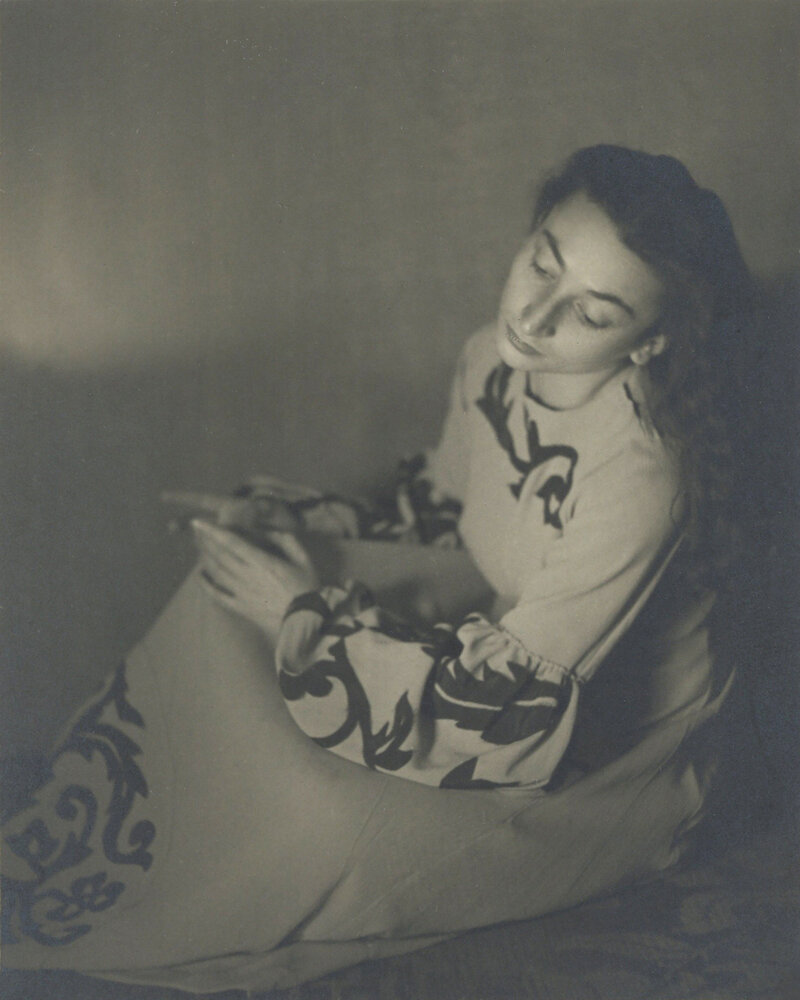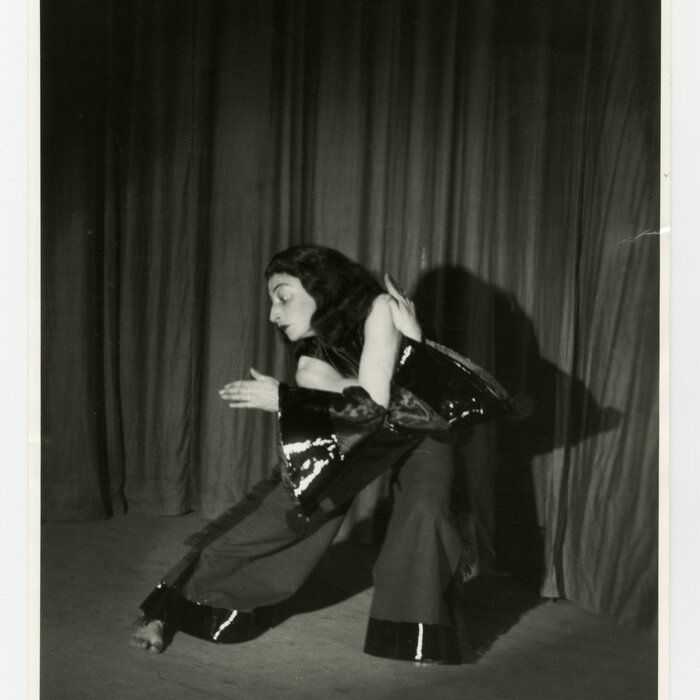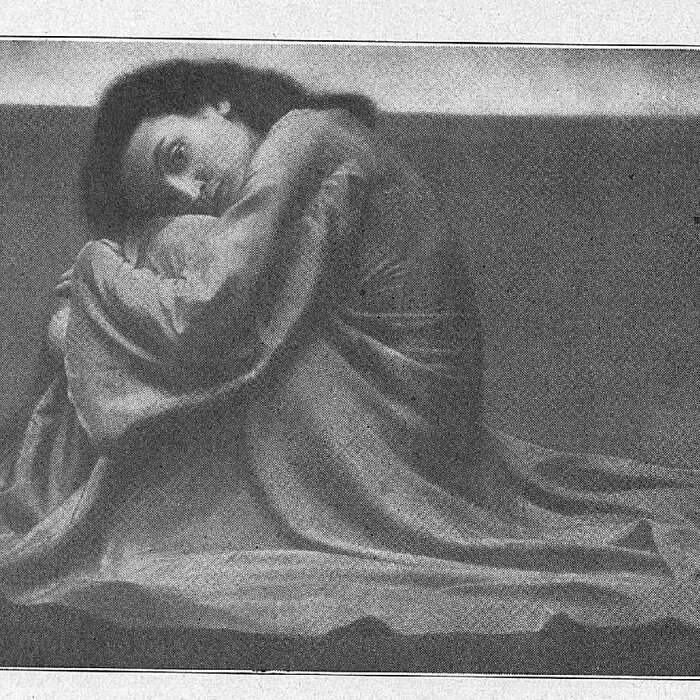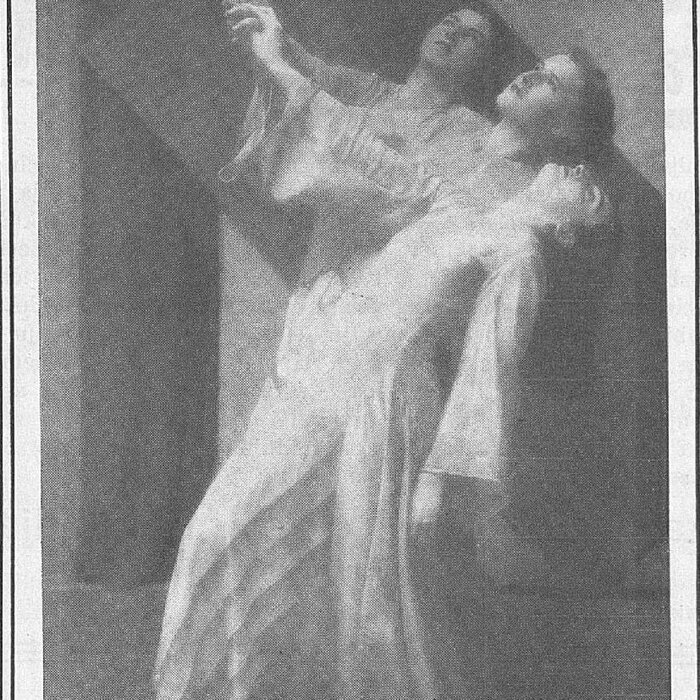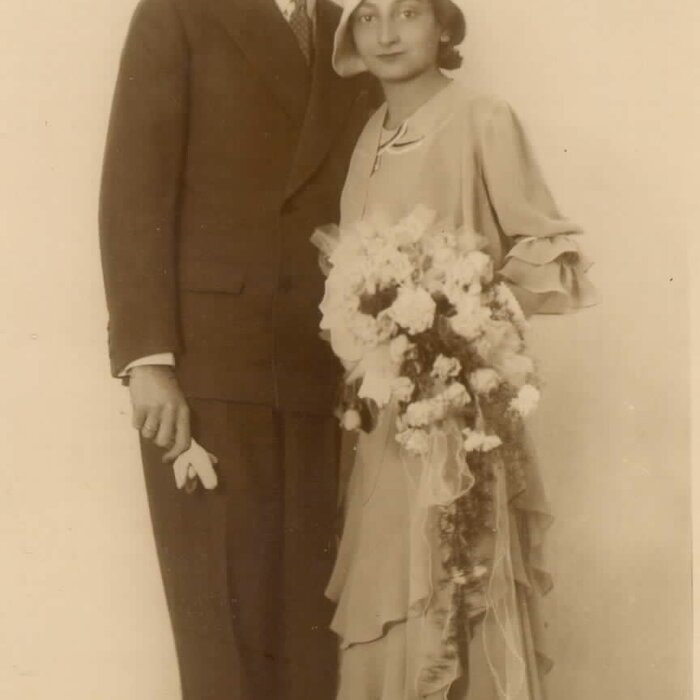Katja Delak
1914–1991
Katja Delak (Katya Delakova, nee Pollack) was active in Ljubljana between 1932 and 1938, where she had a dance school in the Dukič’s block apartments. Delak was the only pre-WWII dancer/choreographer about whom the Slovene critics could not find a consensus and would have very different opinions about whether her works were valuable or not. In her 1932 dance India (Indija), she would represent “subjugated, chained Ghandi’s India” which made critic Emil Adamič recognize “that also the art of dance can have a political accent” (Adamič 1932, 3). In her first evening of dances in November 1932, the titles of the dances suggest some feminist topics: Witch (Čarovnica), A Doll (Lutka), Fire (Ogenj), etc. Her dance travelogue The Road (Cesta, 1934), which she presented in the Slovene National Theatre Opera and Ballet Ljubljana, is a selection of dances in which the social characters of different social classes were presented (peddler, chatterbox, mother, boy from the suburb, the drunk, tramp), along with a choreographic manifestation of the mechanic work. Critic Ludvik Mrzel has characterized her dances as the dances of new objectivity (nova stvarnost, Neue Sachlichkeit) in opposition to the expressionist dance paradigm (Mrzel 1934, 4) that dominated the modern dance landscape at the time. The critic, actress, and writer Maša Slavec, who had been declared a feminist before WWII and wrote for the feminist magazine Women’s World (Ženski svet), would be her persistent supporter. In 1938, when Delak presented her last evening of dances in Ljubljana, the dance critic and composer Marijan Lipovšek noticed that her dances imply the belief that “a man himself does not mean a lot individually or as part of his closed circles, only a community of humans can be important for the ultimate, high goal to get closer to the Light” and question “why human beings have to be exposed to suffering and dying” (Lipovšek 1938, 7). “Delak does not make dance interpretations [does not show] from the abstract notions, the human affects and what is the deepest for the humans are for her the matters, materials for dances” (Slavec 1933, 12–15). The dance art of Katja Delak was the first in Slovenia to be recognized as socially and politically engaged.
From Nika Arhar, Jasmina Založnik (ed.), Bodies ofm Dance, Aspects of Dance as Cultural, Political, and Art Work in Yugoslavia and After (Belgrade, 2024)
